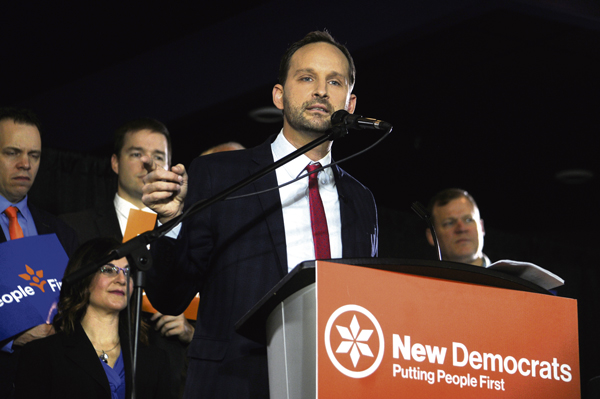In a letter addressed to Saskatchewan Premier Scott Moe on Wednesday, Opposition NDP Leader Ryan Meili demanded an official apology from the province for trauma caused to Indigenous people at the Île-à-la-Crosse and Timber Bay residential schools in northern Saskatchewan.
Neither of the residential schools were included in the federal Indian Residential School Settlement process established as part of the Truth and Reconciliation Commission. The two schools were run by religious groups that were funded by both the Government of Canada and the Government of Saskatchewan.
“The operation of these two residential schools in Saskatchewan was a dark chapter in the history of our province that occurred under the watch of successive governments of all political stripes,” Meili said.
“We cannot change the past, but as leaders, we are responsible for acknowledging our history, admitting fault, accepting responsibility, and moving forward together in the spirit of Truth and Reconciliation.”
Litigation against the Government of Saskatchewan over the Timber Bay and Île-à-la-Crosse schools started in 2001 and 2006 respectively. Similar legal action was also launched against the federal government.
“It is long past time that both orders of government fully take responsibility for their respective roles in the abuse, neglect, loss of language and culture, and violence that many First Nations and Métis people were subjected to in these institutions,” First Nations and Métis relations critic Betty Nippi-Albright said.
“The legacy of the residential schools lives with us to this day. Only by acknowledging and confronting the wrong that was done to Indigenous people and communities can we work to real truth and reconciliation.”
The letter comes after the Lac La Ronge Indian Band (LLRIB) and the Prince Albert Grand Council (PAGC) called on the federal government to take another look at qualifying Timber Bay as a residential school following the discovery of 215 children’s bodies at Kamloops Indian Residential School in British Columbia.
The Supreme Court of Canada has declined to hear the case over residential school status for Timber Bay, a process which is led by the federal government.
Meili and Nippi-Albright also want Moe to pressure the Government of Canada to include Timber Bay in the Indian Residential School Settlement process so that survivors and their families can be compensated.
The province would then work with survivors’ groups from both residential schools to determine appropriate compensation to the survivors and their families by the Government of Saskatchewan.
A spokesperson for the Government of Saskatchewan said the province is committed to “lasting and ongoing reconciliation” with First Nations and Métis and “respects the rights of those involved” to pursue legal action.
Since the Truth and Reconciliation Commission released its Calls to Action in 2015, the Province said it has acted on 28 of 34 Calls to Action focused on provincial authorities, along with an additional 15 calls not directed to the provincial level.
The government said it has not been contacted by either the LLRIB or the PAGC to support their efforts in regard to Timber Bay and declined further comment on either case as they remain before the courts.
A national 24-hour Indian Residential School Crisis Line is available to support survivors and those affected. You can access emotional and crisis support referral services by calling 1-866-925-4419.


